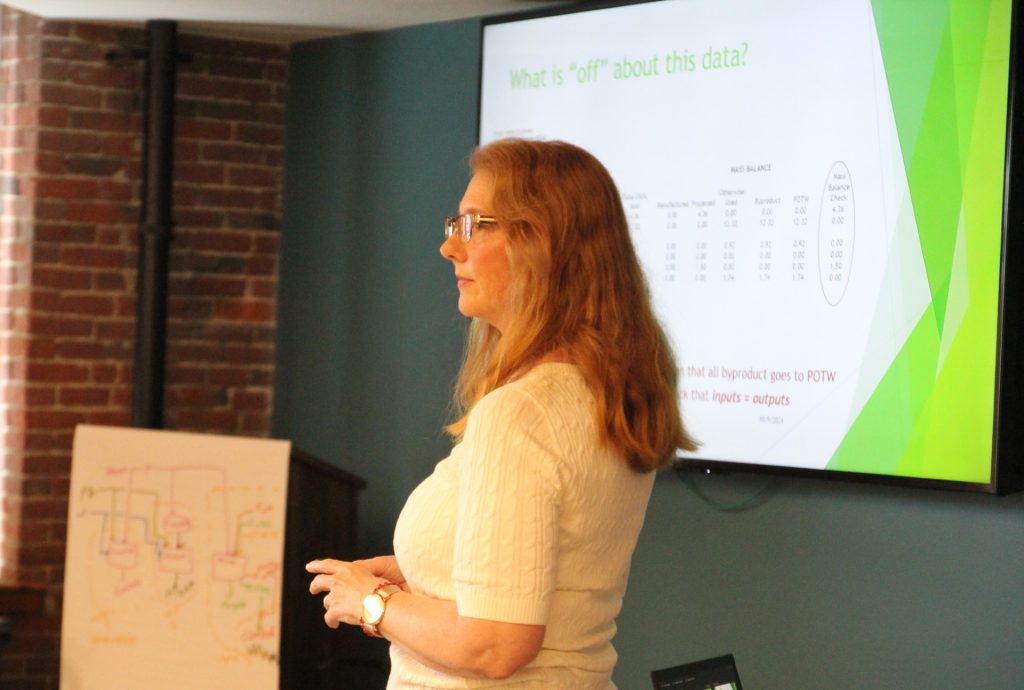Toxics Use Reduction Planners
Under the Toxics Use Reduction Act (TURA), Massachusetts facilities that use large quantities of certain toxic chemicals are required to conduct toxics use reduction (TUR) planning every two years. This planning process helps facilities systematically identify and evaluate opportunities to reduce their use of toxic chemicals at the source. The result of this process is a TUR plan: a comprehensive document that describes current chemical use, outlines reduction options considered, and assesses the environmental, health and safety (EH&S), technical, and economic implications of each option. The plan also includes projections for potential reductions and improvements in efficiency.
TUR planners play a central role in this process. They guide facilities through the evaluation of safer alternatives, ensure that plans are technically sound, and help translate environmental goals into practical, cost-effective strategies. Every TUR plan must be reviewed and approved by a certified TUR planner.
TUR planners come from a variety of backgrounds, from operations to engineering to environmental health and safety (EH&S). They share a commitment to helping facilities find safer, more efficient ways to use materials, reduce toxic chemicals, and minimize waste.
Types of Planners
 General practice TUR planners: Authorized to prepare and certify TUR plans for any facility in the state. Access a list of current general practice planners.
General practice TUR planners: Authorized to prepare and certify TUR plans for any facility in the state. Access a list of current general practice planners.- Limited practice (in-house) TUR planners: May only prepare and certify TUR plans for their employer.
- Resource conservation planners: TUR planners may also be licensed to certify resource conservation plans, which are an alternative planning option available to companies under the 2006 amendments to TURA. To become a resource conservation planner, TUR planners must complete initial certification training and participate in continuing education to renew their certification every four years.
- TURA environmental management systems: TUR planners and EMS professionals may also to licensed to certify TURA Environmental Management Systems (EMS), provided they have demonstrated experience or training in EMSs.
Becoming a Planner
Toxics use reduction (TUR) planners must meet specific eligibility and training requirements set by the Massachusetts Toxics Use Reduction Act (TURA). Here’s an overview, with further information found at the MassDEP TUR Planners and Certification page.
Prerequisites
All TUR planner candidates must meet minimum experience requirements, which includes at least 7 years of full-time employment in fields related to toxics use reduction planning, such as environmental science, engineering, EH&S, or industrial operations. Relevant education may be substituted for up to 4 of the 7 years, depending on degree level and field of study.
Please review the planner eligibility requirements in full.
Initial Certification
There are two paths to certification, based on planner type. General practice planners must enroll in the TUR Planner Certification Course, offered each fall, pass the MassDEP TUR planner exam and apply for certification through MassDEP upon successful completion. Limited practice planners may be eligible for certification based on documented work experience and may not be required to take the course or exam. However, eligibility is subject to MassDEP approval and restricted to certifying plans at their own employer’s facility.
Continuing Certification
To maintain active certification, TUR planners must earn continuing education credits (CEUs) by attending approved trainings such as TURI conferences, MassDEP workshops, and other relevant professional activities. TUR planners renew their certification every two years by submitting documentation of CEUs and a renewal application to MassDEP. MassDEP oversees all planner initial and continuing certification.
